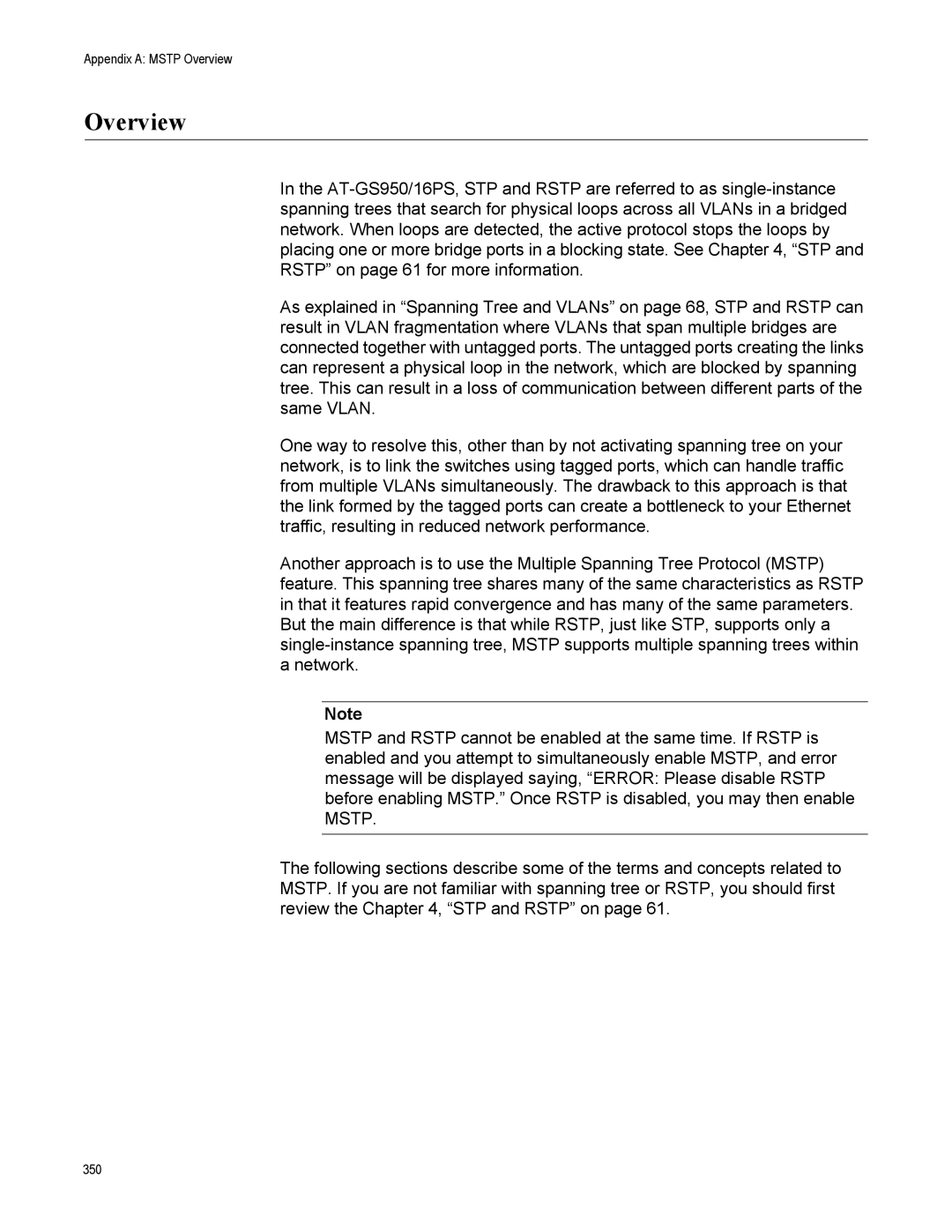
Appendix A: MSTP Overview
Overview
In the
As explained in “Spanning Tree and VLANs” on page 68, STP and RSTP can result in VLAN fragmentation where VLANs that span multiple bridges are connected together with untagged ports. The untagged ports creating the links can represent a physical loop in the network, which are blocked by spanning tree. This can result in a loss of communication between different parts of the same VLAN.
One way to resolve this, other than by not activating spanning tree on your network, is to link the switches using tagged ports, which can handle traffic from multiple VLANs simultaneously. The drawback to this approach is that the link formed by the tagged ports can create a bottleneck to your Ethernet traffic, resulting in reduced network performance.
Another approach is to use the Multiple Spanning Tree Protocol (MSTP) feature. This spanning tree shares many of the same characteristics as RSTP in that it features rapid convergence and has many of the same parameters. But the main difference is that while RSTP, just like STP, supports only a
Note
MSTP and RSTP cannot be enabled at the same time. If RSTP is enabled and you attempt to simultaneously enable MSTP, and error message will be displayed saying, “ERROR: Please disable RSTP before enabling MSTP.” Once RSTP is disabled, you may then enable MSTP.
The following sections describe some of the terms and concepts related to MSTP. If you are not familiar with spanning tree or RSTP, you should first review the Chapter 4, “STP and RSTP” on page 61.
